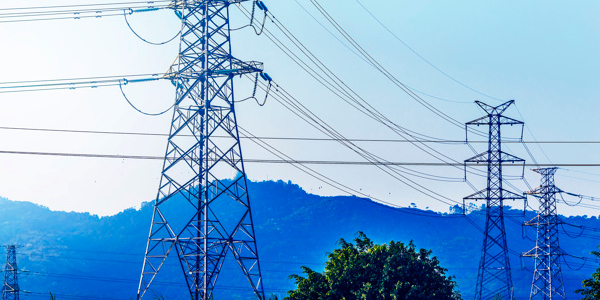Energy Cost Review: Strategic Opportunity or Irrelevant Sideshow?
Published on 4th September, 2017
The appointment in mid-July of Dieter Helm to carry out an independent review into the cost of energy was as a result of an objective expressed in the January 2017 Industrial Strategy green paper, and subsequently in the Conservative Party election manifesto, for the UK to have the “lowest energy costs in Europe, both for households and business”.
This is an ambitious goal and maybe an understandable one in light of the political heat generated by continued retail electricity price increases at a time of falling wholesale costs and the uncertainties caused by Brexit – but are realistic and tangible answers too much to expect from a one-man review lasting only 3 months ?
In answering this question, let’s first consider some context.
At the moment, UK retail gas prices are seen as among the cheapest in Europe and the same is broadly true as far as domestic electricity tariffs are concerned – although a rising trend is causing political angst at a time of stagnant wages. From a comparative European point of view, however, business electricity costs are high and this fact will put British industry at a significant competitive disadvantage post-Brexit. Hence, it would appear that the “energy” review will in fact be focused primarily on electricity.

Copyright © Freepik
We should also note that the scope of the review explicitly excludes specific projects (viz. Hinkley C, smart meter rollout etc ) and appears to steer the reviewer away from existing initiatives such as Ofgem’s retail price protection scheme, energy efficiency and the relief package for energy intensive industries.
Instead, the review is to look at the electricity system as a whole and recommend how energy can be made affordable over the coming decades – with all aspects of the system to be looked at including generation, transmission, distribution and supply. Again it should be noted that any recommendations for reducing costs will, of course, need to be compatible with the wider objectives of meeting the UK’s legally binding climate change targets and maintaining security of supply.
Considering all of the above, the review is clearly therefore both strategic and policyoriented in its focus.
In theory, it could have significant implications for how government might seek to help (or not help) the development of different generation technologies – e.g. renewables versus fossil fuels and, within the renewables sector, preferences as between solar, wind, bioenergy etc.
Another area of potential interest will be the role of transmission and distribution companies alongside the growth of decentralised power generation, and whether the regulatory and cost recovery mechanisms currently in place for the networks are sustainable in a smart energy environment.
Professor Helm is known for his forthright views and has never been shy of putting them forward – whether they have always been right in the past is a matter of debate – and as far as this review is concerned, the Government will be under no obligation to accept any of its recommendations. Those of a jaundiced mindset might conclude that the main objective of the review is to enable the Government to “tick off” one of its manifesto commitments without actually doing anything.
While this may well be the fate of the Helm review, is it being too cynical to assume in advance that this will be the outcome ? Let us hope not as the future generation mix and the role of the networks raise huge long term questions to which answers are urgently required.
Taking just one example that impinges directly on EnDCo* customers, when the electricity system was organised around the principle of central dispatch, it was accepted that as a natural monopoly the network function (i.e. transmission and distribution) had to be organised and regulated via significant government intervention. This remains true even with the network companies in private ownership – but with growing system decentralisation it is not at all clear what the role of the government should be in fostering a network which permits the natural growth of decentralised solutions at least cost while maintaining security of supply.
What is clear is that the costs of an overdesigned, redundant network can act as a deadweight burden on the development of least cost solutions. Perhaps the least we have a right to expect from the cost review is that it will shed some light on how this risk can be mitigated.
For further information, please email me at: les.abbie@endco.co.uk
Les Abbie, CEO, EnDCo
* As a half-hourly supplier, EnDCo provides transparent and independent market access services to generators and business consumers looking for the lowest cost route to market


 REPORTS
REPORTS 

